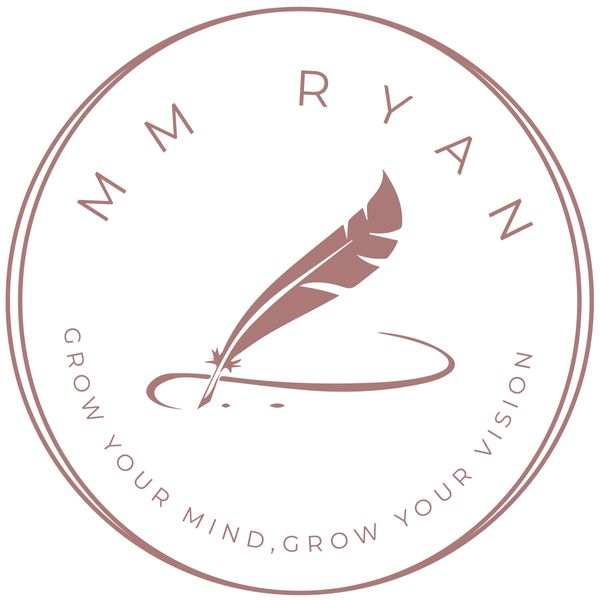
A Candid Look: 5 Pros and Cons of Writing Groups
Published by MM Ryan 7/19/2023
First--I must admit that I’m a terrible writing group participant.
I was once in a critique group for 8 weeks and thought the pressure would kill me. From preparing and presenting weekly writing assignments, to the assigned readings, and then the written critiques I was expected to prepare for the other members, I struggled.
Then there was the feedback I received from the group on my writing. They didn’t get my genre- Christian Fiction, my ethnicity—African American—and my not-very artistic writing style. They didn’t take me seriously, and one older gentleman declined to critique my story. It wasn’t worth his time.

I attributed this bad experience to the group, although they were diverse. I was the only African American Female Author, and there was one gay African American guy-- (who also didn’t bother to critique my work). There were two other women, one of whom was a Christian writer, the rest were white males.
After this experience, I joined an online group geared toward Black Writers but then didn’t participate. It was too easy to blow it off week after week.
I have found, however, that I enjoy writer’s conferences and that’s the writer’s community I focus on. Even though writing is a solitary endeavor, I still need to connect with other writers. Maybe not on an ongoing basis but a few times a year works for me.
How about you?
In this blog post, we’ll explore the pros and cons of joining a writing group. Whether you're a seasoned writer or a newbie, understanding these aspects can help you make an informed decision about whether or what type of writing group is right for you.
Pros of Writing Groups
1. Supportive Community: One of the most significant advantages of writing groups is the sense of camaraderie and support they provide. It's a place where you can freely express yourself and feel validated in your writing journey.
2. Feedback and Critique: Constructive feedback is a vital aspect of writing growth. This feedback can highlight blind spots, identify strengths, and offer new perspectives, ultimately enhancing the quality of your writing.
3. Accountability and Motivation: When you're part of a writing group, you're more likely to set writing goals and stick to them. The regular meetings and interactions create a sense of accountability, nudging you to stay focused and disciplined in your writing practice.
4. Diverse Perspectives: Writing groups often consist of writers from various backgrounds, genres, and experiences. This diversity brings a rich tapestry of perspectives.
5. Learning Opportunities: Workshops, discussions, and writing exercises can expand your skill set, spark creativity, and help you overcome writer's block or other writing challenges.

Cons of Writing Groups
1. Group Dynamics: Like my first experience, writing groups are subject to interpersonal dynamics that can be challenging. Differing personalities or conflicting feedback styles might create tension, affecting the overall experience.
2. Time Commitment: Being part of a writing group requires time and dedication. Meetings, reading and critiquing others' work, and participating in group activities can be time-consuming.
3. Creative Differences: While diverse perspectives can be enriching, creative differences may arise, particularly when writers have distinct preferences or writing styles.
4. Competing Priorities: Life's demands can sometimes clash with writing group commitments, causing stress or potential conflicts.
5. Dependency on Feedback: Remember to balance external input with your intuition so you maintain authenticity in your writing.
Conclusion
Writing groups can be great for writers, offering support, feedback, and inspiration. However, everything isn’t for everybody. If you thrive in a community that fosters growth and collaboration, a writing group might be a perfect fit. But preferring a more solitary writing experience is equally valid.
It’s all about finding what aligns with your creative process and nurtures your passion for writing. Embrace it with an open mind and a willingness to learn. Happy writing!
